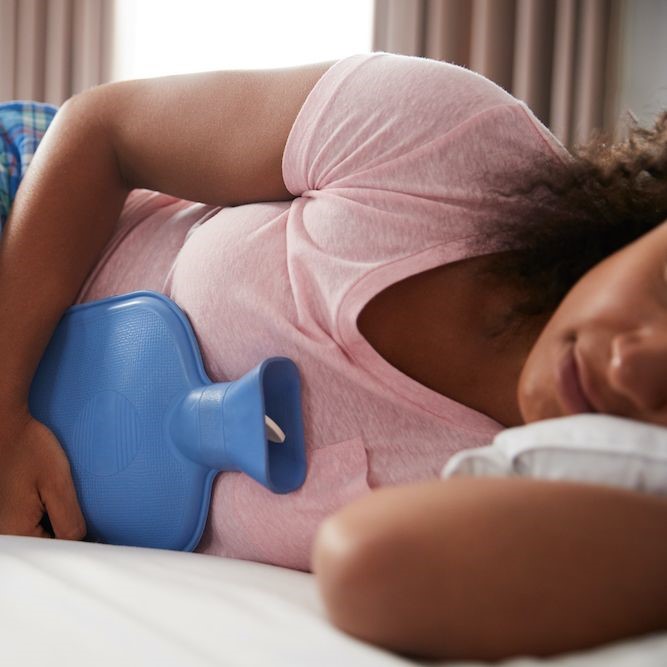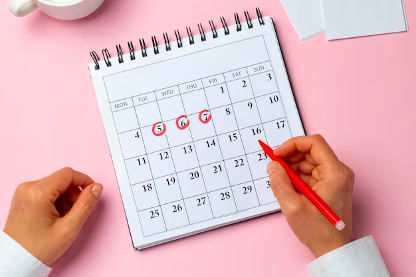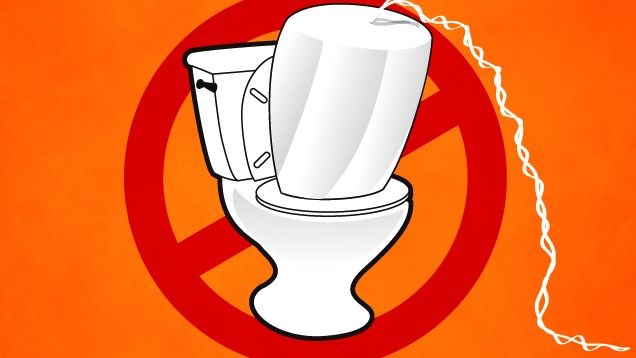Periods! A monthly visitor that brings a rollercoaster of emotions and for many, cramps.
But why exactly does your uterus decide to throw a pain party every month?
Buckle up, because we’re diving deep into the world of period pain.
The Culprit: Prostaglandins and More
The not-so-fun culprit behind period pain is a group of hormone-like substances called prostaglandins. These guys increase during your period, causing your uterus to contract and shed its lining. The stronger the contractions, the more intense the cramps.
But prostaglandins aren’t the only party crashers. Other factors can contribute to period pain, including:
- Endometriosis: When uterine tissue grows outside the uterus, it can lead to severe pain during your period.
- Uterine fibroids: These non-cancerous growths in the uterus can cause cramping, pressure, and heavy bleeding.
- Adenomyosis: When the endometrial lining grows within the uterine muscle wall, it can cause intense pain and heavy periods.
- Pelvic Inflammatory Disease (PID): PID is an infection of the female reproductive organs, often caused by sexually transmitted bacteria. It can lead to severe menstrual pain, fever, and unusual discharge.
- Cervical Stenosis: In some individuals, the cervical opening is very small, which can impede menstrual flow and increase pressure within the uterus, causing painful cramps.
- Intrauterine Device (IUD): While effective for birth control, some IUDs can cause increased menstrual pain, especially during the first few months after insertion.
How to Manage Painful Periods

Managing menstrual pain often requires a combination of lifestyle changes, home remedies, and medical treatments. Here are several strategies to help alleviate menstrual discomfort:
- Over-the-Counter Pain Relief: Nonsteroidal anti-inflammatory drugs (NSAIDs) like ibuprofen (Advil, Motrin) and naproxen (Aleve) can reduce menstrual pain by lowering prostaglandin levels. These medications are most effective when taken at the onset of symptoms.
- Heat Therapy: Applying heat to the lower abdomen can relax the muscles of the uterus and alleviate cramps. Use a heating pad, hot water bottle, or take a warm bath to provide relief.
- Regular Exercise: Engaging in regular physical activity can help reduce menstrual pain. Exercise increases blood flow and releases endorphins, which are natural painkillers. Aim for activities like walking, swimming, or yoga.
- Dietary Adjustments: Certain dietary changes may help reduce menstrual pain. Increase your intake of anti-inflammatory foods like fruits, vegetables, whole grains, and lean proteins. Reduce consumption of caffeine, alcohol, and high-fat foods.
- Hydration: Staying hydrated can help reduce bloating and alleviate menstrual pain. Drink plenty of water throughout the day, especially during your period.
- Relaxation Techniques: Practicing relaxation techniques such as deep breathing, meditation, or progressive muscle relaxation can help manage pain and reduce stress, which can exacerbate menstrual symptoms.
- Herbal Remedies: Some individuals find relief from menstrual pain through herbal remedies like ginger, turmeric, and chamomile tea. Always consult with a healthcare provider before starting any herbal treatments.
- Medical Treatment: If menstrual pain is severe and unmanageable with home remedies, consult with a healthcare provider. Conditions like endometriosis or fibroids may require medical treatment or surgical intervention.
When to See a Doctor
While mild to moderate menstrual pain is common, severe pain that interferes with daily activities may indicate an underlying health issue. Seek medical attention if you experience:
- Pain that is not relieved by over-the-counter medications.
- Extremely heavy bleeding or passing large blood clots.
- Symptoms of infection, such as fever or foul-smelling discharge.
- Severe pain that began suddenly or has worsened over time.



